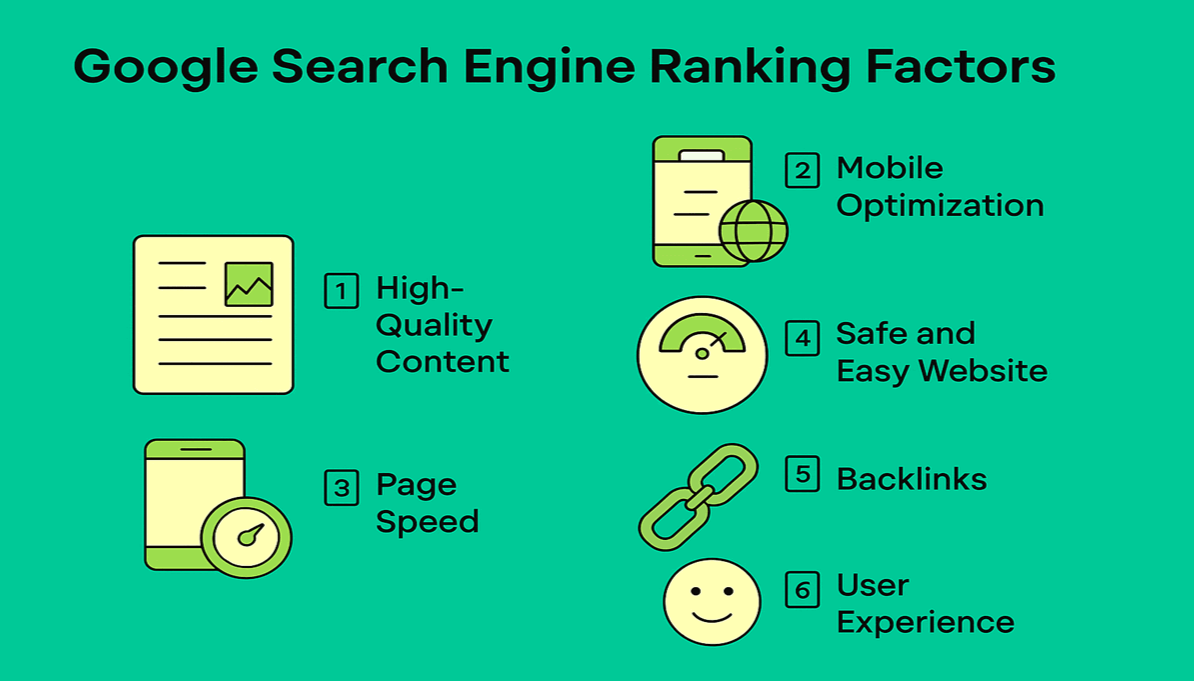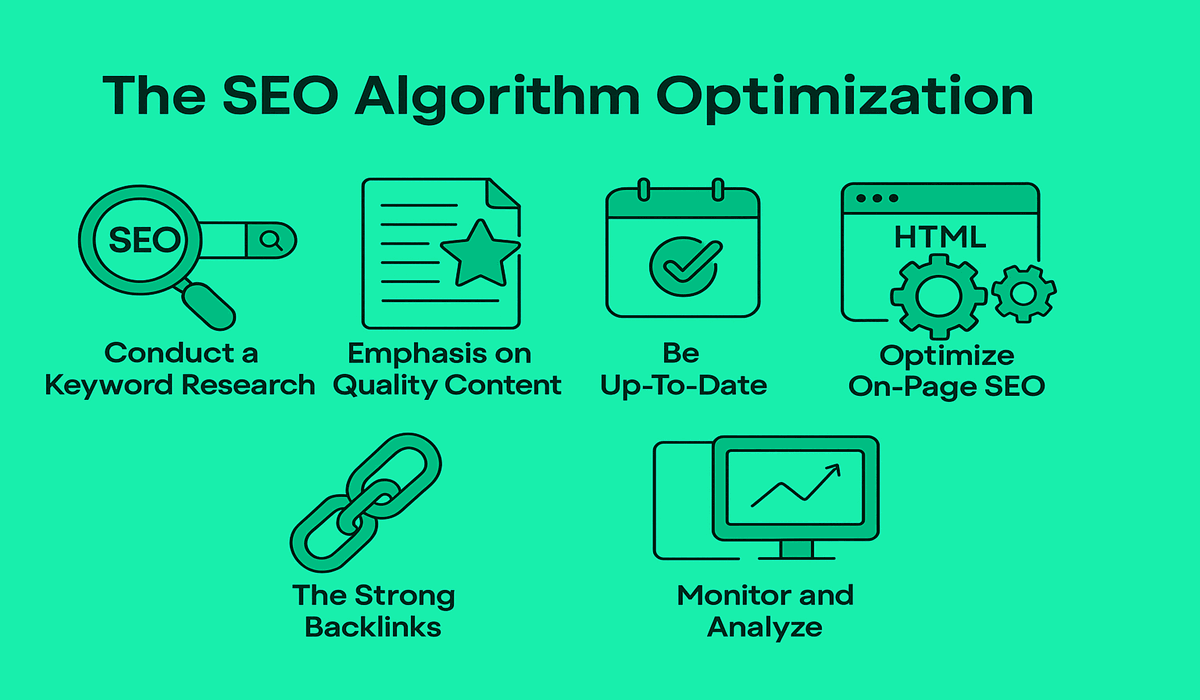Each time you Google anything, whether it is a search on “best hosting provider near me” or one that tells you about "Resolve Domain Registration issue In Pakistan”, Google is working strongly on the powerful search algorithm, all in a matter of milliseconds.
But have you ever wondered how Google determines those that come first in the results? The real magic (and science) of the Google search algorithm can be applied there.
In this guide to beginners, we are going to understand the mechanism behind the functioning of the Google algorithm, the kinds of search algorithms that influence your Google search engine ranking. Also, we will tell you how you can stay enlightened with every new update of Google search algorithms that strive to make the SEO algorithm game stronger.
What is the Google Algorithm?
Originally, the Google algorithm is a far-reaching system that is applied by the Google search engine to access the data in its massive index and provide the most appropriate answers to a particular question. This algorithm does not work according to one specific formula-it is a complex mesh of ranking signals such as keywords, relevance, usability, and currentness.
Google has grown over the years in terms of the way it matches keywords to use AI-driven systems, which recognize search intent, context, and see how people behave. These innovations make sure that a person receives the best and the most useful answers he/she can get.
What is the importance of the Google Search Algorithms?
The information that users find as the first among the others is directly dependent on the Google search algorithm. This is good news to businesses, marketers, and content creators because visibility, clicks, and in the final analysis, conversions are now all about the degree to which you adjust to what the algorithm likes.
When you have a site that appears on the first page, the site is viewed as credible and authoritative. However, when you are buried inside the fifth page, it is most likely that no one is going to find
you. It is because of this aspect that studying and adjusting to the SEO algorithm is critical to internet success.
Search Algorithms Types
Google has several search algorithms that operate in agreement to screen and rank content. These are some of the most important ones:
1. Crawling and Indexing Algorithms
Google uses crawlers (bots) to discover the pages in search results before anything can be viewed in search results. These bots traverse the links, crawl content, and push out new pages to the indexes of Google.
2. Ranking Algorithms
After a page is indexed, various algorithms then review its relevance and usefulness. Google takes into account more than 200 ranking factors, such as the quality of the content, usability on mobile devices, page speed, backlinks, and others.
3. Machine Learning Algorithms and AI
Such programs as RankBrain and BERT employ machine learning to learn more about what people want to find. They not only look at the keywords but also examine context and semantics, and their results on complex or conversational search improve.
How Google Search Engine Works?
To make it simple, the work of the Google search engine is divided into three basic steps:
1. Crawling
Googlebots are always roaming through the net, clicking from one page to the next. They collect information from the websites and send the information back to Google servers.
2. Indexing
All the collected materials are kept in Google index, which is an enormous store of information. In this case, on the pages, there is division by keywords, usefulness, and other indicators.
3. Ranking
When you search for something, the search engines compare the query you type to their index and form the best matches with their search algorithms. The manner in which these results are sequenced is what we refer to as Google search engine ranking.
Important Google Search Algorithm Update
Google continually optimizes its algorithm to enhance the experiences of its users. Not all the updates are major, and some of them are game changers. Several milestone changes are as follows:
- Panda: gets its directions from content quality. It penalized duplicating or weak content.
- Penguin: Penalized spam-type link-building efforts and rewarded organic means of link-building.
- Hummingbird: A better comprehension of search intent and conversational queries, in particular.
- RankBrain: acts as a machine learning algorithm, supporting the interpretation of unknown queries.
- BERT: It employs NLP (natural language processing) to know more about the context of words in a search query.
In order to retain or rise in your ranking, it is important to keep up with each change as the Google Search Algorithm update regularly.
Google Search Engine Ranking Factors

There are many issues involved in ranking you on a search page. Some of the most important elements of the SEO algorithm are the following:
1. High-Quality Content
What is contained must be relevant, original, informative and good. Google is partial to content that fills the search intent of the user.
2. Mobile Optimization
Under mobile-first indexing, you have to make sure that your site is responsive and mobile-friendly to rank high.
3. Page Speed
Such a low rate of page-loading does not have a good user experience, leading to an adverse impact on your ranking.
4. Safe and Easy Website
User confidence and crawling are enhanced by having a secure and user-friendly (HTTPS) site.
5. Backlinks
High-quality links should come directly to authoritative websites to indicate that your content is credible.
6. User Experience
Rankings also consider such metrics as bounce rate, time on page and click-through rate (CTR).
The SEO Algorithm Optimization

To improve visibility and achieve a good Google search engine ranking, aim to follow the following best ideas:
Conduct a Keyword Research
Find the appropriate keywords concerning your niche. Execute the strategy by using tools such as Google Keyword Planner, Ahrefs, or SEMrush.
Emphasis on Quality Content
Write to people, not the computers. Put in useful data, keywords, and a good structure of Content .
Be UpToDate
Subscribe to the blogs of experts in SEO to stay updated with changes to their search algorithms.
OPTIMIZE On-Page SEO
Insert the descriptive meta tags, optimize the images, and use content placed in the form of headers (H1, H2, etc.).
The Strong Backlinks
High-quality backlinks can be obtained with the help of guest posting, digital PR, and content marketing.
Monitor and Analyze
Utilize the tools such as Google Search Console and Analytics to find out the performance status and such shortcomings in order to improve it.
Final Thoughts
The search algorithm created by Google is continuously changing, and that is why SEO is a challenge and an opportunity. Knowing why search algorithms are designed the way they are and keeping yourself in touch with each significant update of Google search algorithms will help you to design the content that can not only rank high but also be useful to your audience.
In case you need professional assistance so that you do not fall behind the latest trends in SEO, contact Websouls. We ensure that your ranking is as high as possible in the Google search engine.
Being one of the leading SEO agencies in Pakistan, they are focused on attracting organic traffic to your site, optimizing it, and making your business stand out among the rest in a busy digital world.






